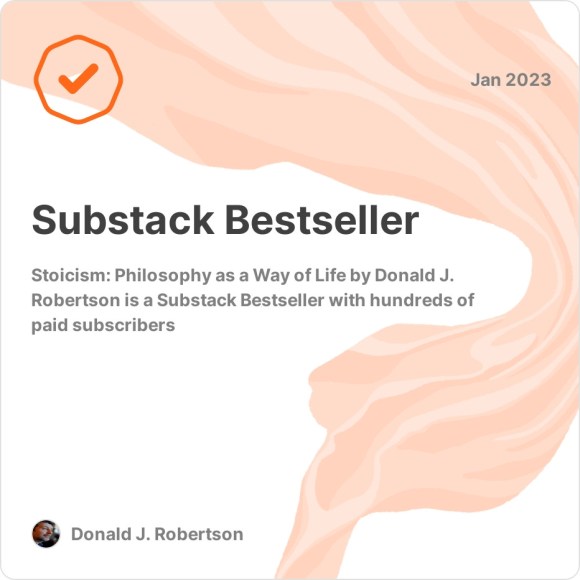
Dear Stoic fam,
I want to begin by thanking you! In January, my newsletter became one of Substack’s official bestsellers, as a direct result of your support.

When I was thinking about starting it, I wondered whether it was really needed and what it could accomplish. Way back in Oct 2012, I was invited to a multi-disciplinary workshop, organized by Chris Gill, professor emeritus of Ancient Thought, at Exeter University. We went on to found the Modern Stoicism organization, the Stoic Week online course, and Stoicon conferences. We contributed, I hope, in our small way, to the renaissance in popularity that Stoicism has gone through since then. However, in some regards the philosophy we love has now become a victim of its own success.
Over the years, I noticed more and more articles, videos, podcasts, and books, which seemed to present Stoicism in a very superficial way, or even to badly misrepresent its central ideas. I also watched as the Stoicism communities on social media grew to hundreds of thousands of members but increasingly became dominated by joke memes, and articles about things like how to get rich quick, etc. This seemed very far removed from the Stoic philosophy of Seneca, Epictetus, and Marcus Aurelius. Controversial influencers, such as Andrew Tate and others like him, have jumped on the bandwagon, claiming to be inspired by Stoicism. I noticed that high-quality content from leading experts on the philosophy — like Chris Gill, Massimo Pigliucci, and Chris Gill — was often being drowned out by all the noise on social media.
I learned, though, that Substack was building a space designed to be different. I began to wonder if starting a newsletter might offer a way to create a community where I could help others to put Stoicism and other branches of Greek philosophy into practice, in ways that might help them in daily life.





